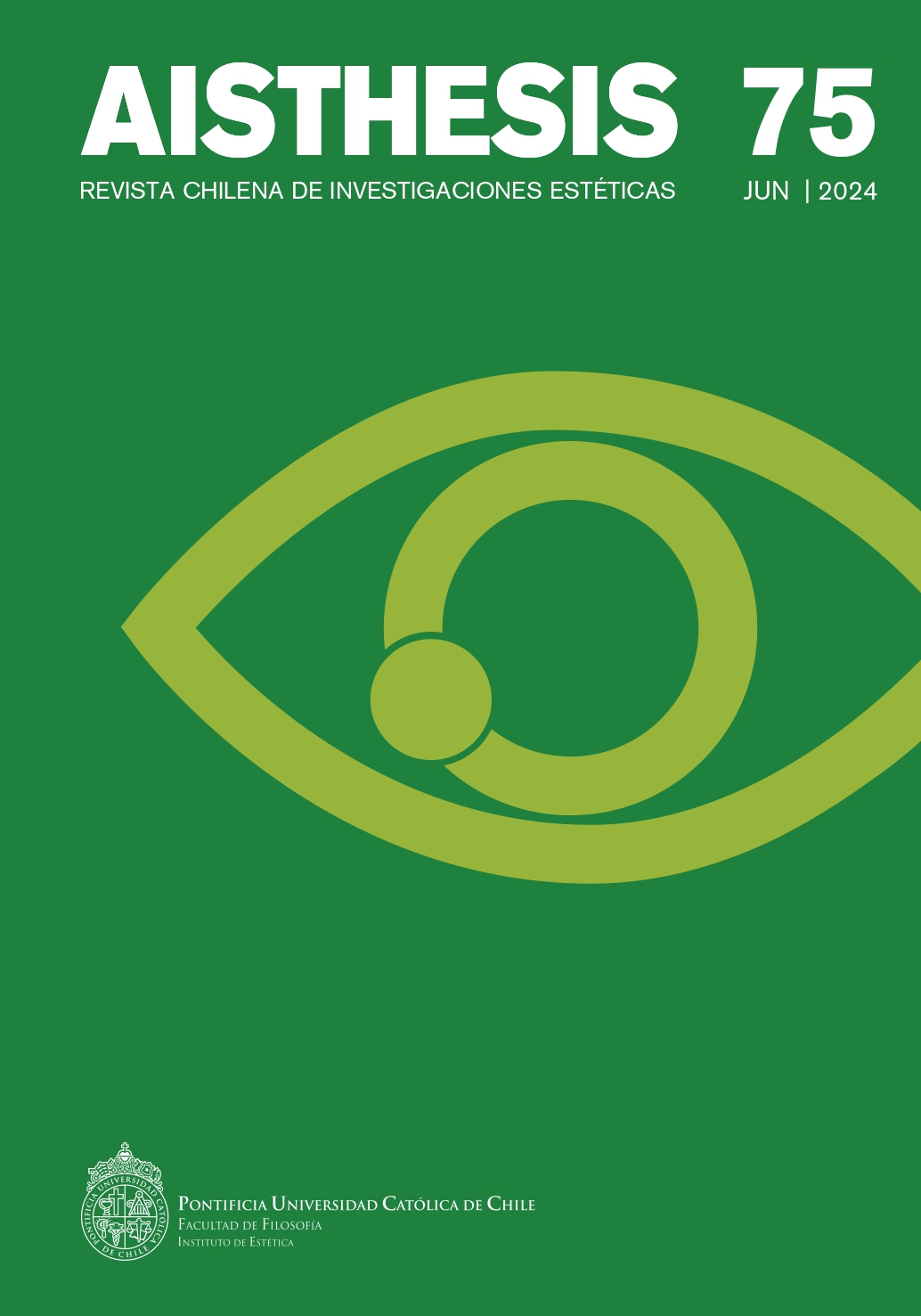Words in the Camera Obscura (about the Poetry of Augusto de Campos)
Main Article Content
Abstract
This essay analyzes the work of Augusto de Campos and his relationship with visual poetry. Starting from the Brazilian poet's use of the black page to compose his poems, it proposes a reading of his work in relation to the legacy of Mallarmé and his idea of writing. Subsequently, starting from the idea of the materiality of poetic language that is at the heart of Augusto de Campos’ poetic project, the passage towards a haptic dimension that occurs in his poems, especially in “Anticéu” (“Anticielo”) of 1984, is proposed.
Downloads
Article Details

This work is licensed under a Creative Commons Attribution-NonCommercial-ShareAlike 4.0 International License.
All contents of this electronic edition are distributed under the Creative Commons license of "Attribución-shareAlike 4.0 Internacional" (CC-BY-SA). Any total or partial reproduction of the material must mention its origin.
The rights of academic works published in this publication belong to their authors., who grant to AISTHESIS: Revista Chilena de Investigaciones Estéticas the license for its use. The management of the permits and the authorization of the publication of the images (or of any material) that contains copyright and its consequent rights of reproduction in this publication is the sole responsibility of the authors of the articles
References
Referencias
Aguilar, Gonzalo. La poesía concreta: las vanguardias en la encrucijada modernista. Beatriz Viterbo, 2003.
––. «Augusto de Campos: la traducción del nombre». Cuadernos del Sur, nº 34, 2005.
––. Hélio Oiticica, a asa branca do êxtase: arte brasileira de 1964-1980. Trad. Gênese Andrade. Anfiteatro-Rocco, 2016,
Brand, Gerd. Los textos fundamentales de Ludwig Wittgenstein. Alianza, 1981.
Campos, Augusto de. Lenguaviaje (Antología). Ediciones Biblioteca Nacional, 2017 (hay reediciones: Bogotá, Universidad de los Andes, Ediciones Uniandes, 2019 y Madrid, Libros de la Resistencia, 2020).
Campos, Augusto de, Décio Pignatari y Haroldo de Campos. Teoria da poesia concreta. Duas Cidades, 1975.
cummings, e. e. 10 poemas. Trad. Augusto de Campos. Ministerio de Educación y Cultura, 1960.
Derrida, Jacques. De la gramatología. Siglo XXI, 1971.
––. «Cada vez, quer dizer, e no entanto, Haroldo». Homenagem a Haroldo de Campos. PUC-SP, 1996.
Freud, Sigmund. «La pizarra mágica». Obras completas, tomo XIX. Amorrortu, 1992.
Kenner, Hugh. The Poetry of Ezra Pound. New Directions, 1952.
Mallarmé, Stéphane. Divagaciones. Pontificia Universidad Católica del Perú, 1998.
Rancière, Jacques. Mallarmé. La política de la sirena. LOM, 2015.
Smith, Daniel. «Introduction» a Gilles Deleuze, Francis Bacon: The Logic of Sensation. University of Minnesota, 2003.
Stearn, Gerald Emanuel y otros. McLuhan: caliente & frío. Sudamericana, 1973, pp. 184-185.
Valéry, Paul. «Le Coup de Dés». Variedad I. Losada, 1956.
Wall-Romana, Christophe. «Mallarmé’s Cinepoetics: The Poem Uncoiled by the Cinématographe, 1893–98». PMLA (Publications of The Modern Language Association of America), 2005.
Material audiovisual
«O Pulsar de Augusto de Campos con música de Caetano Veloso» en plataforma YouTube: https://www.youtube.com/watch?v=Hlgkz-g-ukc
